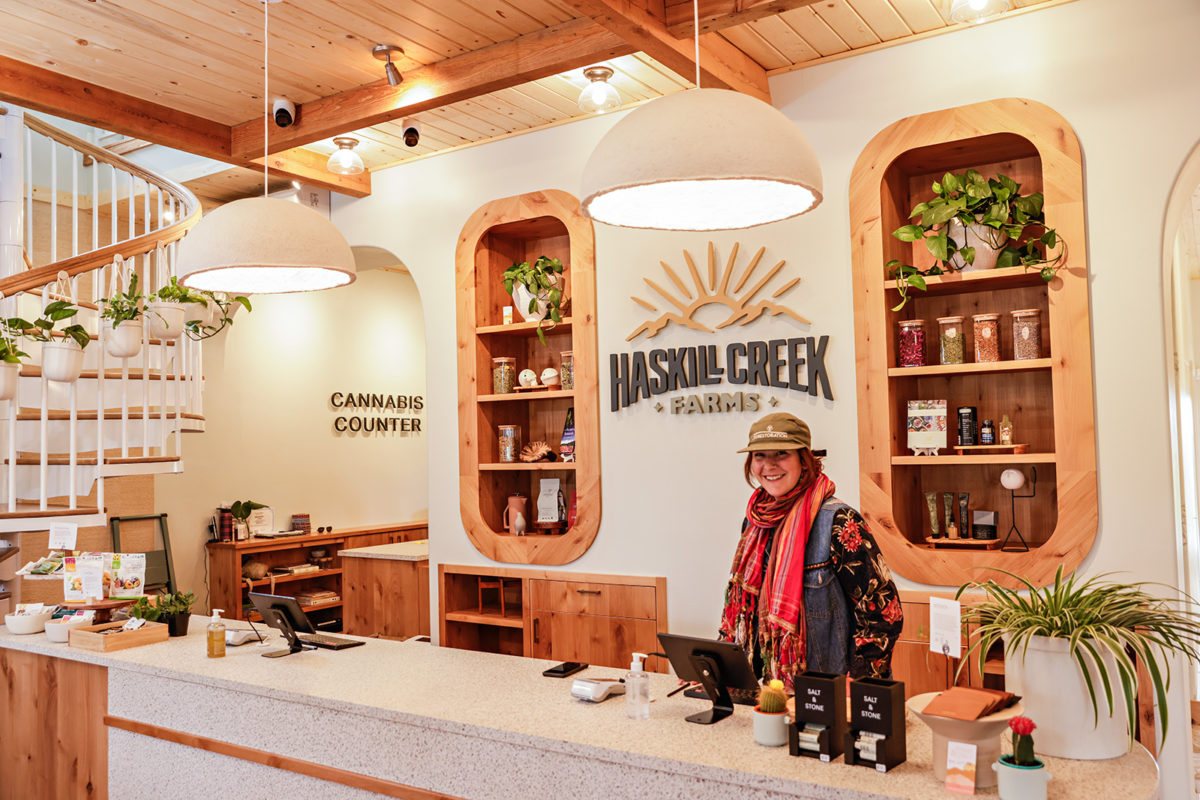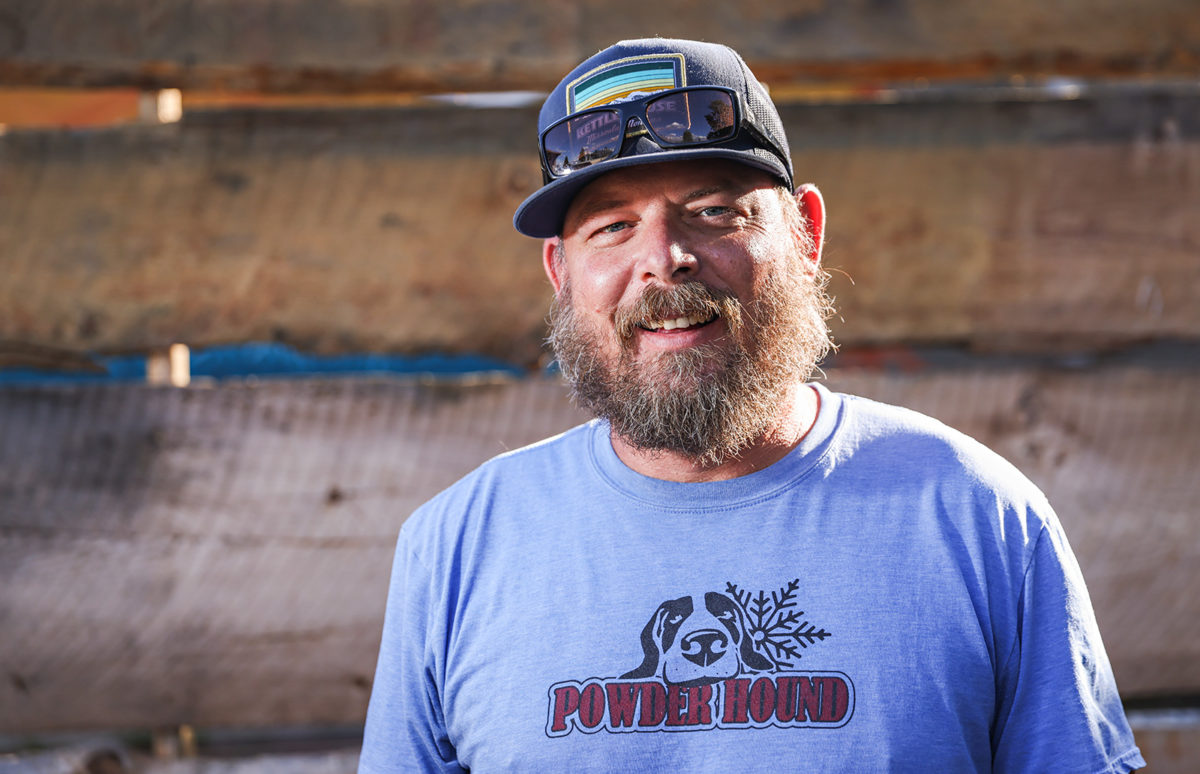Multiple New Marijuana Dispensaries Set to Open in Whitefish
Rolling back a decade-long moratorium on pot shops, the city of Whitefish has approved plans for eight new cannabis shops in town. But some business owners say statewide backlogs and complex guidelines have left them in limbo.
By Denali Sagner
Eight adult-use marijuana dispensaries are slated to open in Whitefish after the passage of state legislation last spring allowed for the beginning of recreational marijuana sales across Montana. However, procedural slowdowns and overlapping guidelines have complicated the process, obscuring the future of the city’s cannabis economy.
On May 18, 2021, Gov. Greg Gianforte signed into law House Bill 701, which outlined the future of recreational cannabis sales throughout the state. The bill featured a number of provisions outlining when, where and how dispensaries could begin selling marijuana to adults over the age of 21.
Beginning Jan. 1, 2022, dispensaries that held established licenses for medical marijuana were allowed to begin sales to all adults. This permitted medical sellers to begin dispensing recreationally in their pre-existing shops, as well as to apply for permits to open new adult-use dispensaries. This provision gave medical marijuana dispensers an 18-month lead in the recreational cannabis market, as newcomers to the business without preexisting licenses are not allowed to put in applications with the state government until July 1, 2023.
The bill also included regulations such as prohibiting the smoking of marijuana in public places, regulating marijuana packaging and transportation and limiting the amount of THC (the main psychoactive compound in cannabis) allowed in marijuana products.
Many medical licensees eagerly jumped on the opportunity to open new locations, seeing the budding economic promise of adult-use recreational cannabis in the state. In the first four months of 2022, alone, marijuana providers in Montana sold $72.9 million in cannabis products.
The chance to enter the marijuana market in the city of Whitefish was particularly promising for investors. Until Jan. 1, 2022, Whitefish operated under a city ordinance passed in 2012 that banned medical marijuana dispensaries from operating storefronts within city lines. Under new state legislation, the city dropped the ban, opening up an untouched and promising landscape for sales.
On Jan. 6, 2022, the city of Whitefish began allowing those with pre-existing medical marijuana licenses to apply for conditional use permits to open new dispensaries in the city. In addition to state regulations outlined in the bill, the city of Whitefish outlined strict zoning guidelines for the establishment of such dispensaries.
According to the Whitefish City Code, no dispensaries can be established on Spokane Avenue between Railway and East Second Streets. Downtown dispensaries must be located at least 150 feet apart from one another and dispensaries in the city’s secondary business districts must be located at least 500 feet apart. In accordance with state guidelines, marijuana facilities are also barred from being within 500 feet of and addressed on the same street as a church, synagogue or public school.

Scot Chisholm, founder of herbal dispensary and mercantile Haskill Creek Farms, lined up outside of the city Planning & Building Department at 4 a.m. on Jan. 6 to apply for a city permit to open his second dispensary.
Haskill Creek’s original two-concept store – located at 1202 Voerman Rd. – offers both a health and wellness shop and a dispensary, the Cannabis Counter. Chisholm was granted a medical marijuana license for the Cannabis Counter in 2020, which under the state bill now allows him to sell both medically and recreationally to customers. This past winter, Chisholm was approved for an administrative conditional use permit to open Haskill Creek’s second dispensary in Whitefish. Construction has just begun on the building’s exterior, which will be located at 404 E. First St. Chisholm is hopeful that things will be up and running by the end of this year or early next year.
Overall, Chisholm says he found the Whitefish City process “pretty streamlined.”
Other dispensary hopefuls echoed this sentiment, finding the city’s permitting process generally easy to navigate. Dave Taylor, Whitefish Planning and Building Director, said that despite the “big rush” for conditional use permits on Jan. 6, “there weren’t any conflicts.”
The state’s approval process, on the other hand, has left many in the dark on if, and when, their shops will be allowed to open.
Elliot Lindsey faced considerable difficulties in getting a new dispensary approved by the state’s Cannabis Control Division, a branch of the Department of Revenue. Lindsey owns Bozeman-based dispensary Grizzly Pine and plans to open a second location in Whitefish by the end of the summer. He says the state is “inundated with renewals” and that approvals which would have normally taken two weeks are being dragged out over a number of months.
“Things are getting messy and it seems to take forever now,” he said. Lindsey has told friends in the business to start their license renewal and approval processes months earlier than they typically would have, given the unprecedented backlogs.
Even though Lindsey is already licensed to dispense marijuana, the state of Montana requires that “every location must be applied for, inspected, and approved before beginning operation.” Each application requires a number of documents, such as a building inspection report, documentation of Montana residency for all applying parties with at least a 5% financial interest or greater, a business organization chart and city and county approval. Licensees must also pass a comprehensive inspection in order to open up shop.

Ed Docter, owner of Tamarack Ski Shop and Montana Tap House, says he is “losing money every day” as he waits for state inspectors to approve one of his two new dispensary locations.
“The state is really backed up,” Docter told the Beacon. “They told us we’re in the queue,” but the actual timeline on approval is unclear.
The Department of Revenue told the Beacon in an email that renewals can take as few as 30 days if the licensee has all necessary materials completed and that any holdups relate to issues with local government administration. “The delays many have experienced are not due to the department’s ability to timely process and inspect businesses,” the email stated.
Docter, who is new to the cannabis business, intends on opening two dispensaries in downtown Whitefish in the coming months. While Docter himself did not previously possess a license for medical marijuana sales, he says he was able to partner with a local grower who was already licensed in order to open the storefronts.
This partnership model has allowed many entrepreneurs to enter the recreational cannabis market who would have otherwise been barred from doing so by state guidelines. Docter says many growers were eager to partner with him, given that he owned two buildings downtown that happened to fall within the city’s and state’s guidelines for dispensary locations.
Yet despite being approved by the city of Whitefish to open the two dispensaries on Wisconsin Avenue, Docter will not be allowed to begin operation until he is approved by the state.
On such partnerships, a state spokesperson wrote, “It is legal for a business to bring on new partners as long as they meet the Montana resident requirement and have passed their background check. We recommend businesses who are interested in making changes to their partnership structures contact their attorney to assist with any changes.”
Still, other area business owners are leveraging their long ties to the medical marijuana industry as they venture into the adult-use recreational economy.

Tamarack Cannabis owner Erin Bolster is no newcomer to the Flathead’s cannabis industry. Tamarack has served Montanans with medical licenses since 2009, making it one of the longest-standing dispensaries in the area. In the months leading up to the passage of recreational legalization, Bolster expanded her business by 1,000 square feet of greenhouse space and 1,500 square feet of indoor production space in anticipation of increased sales.
Tamarack’s original location sits off of U.S. Highway 93, between Kalispell and Whitefish. Now, Bolster is expanding to add an entirely new location in Whitefish’s downtown. She has had few problems with state approval and is expecting to open up by the end of the summer.
Even as the area awaits the opening of Whitefish’s eight new cannabis dispensaries, substantial capital has already been generated from recreational sales at standing storefronts. Flathead County cannabis revenue amounted to over $2.57 million in May, $1.79 million of which came from adult-use sales.
Voters in surrounding areas have voted to tax these sales on the county level, a measure that has not been adopted in the Flathead. On June 7, voters in neighboring Lake County approved a 3% local-option sales tax on marijuana purchases, which is set to generate considerable revenue for the county. Missoula, Park, Yellowstone and Dawson Counties have also implemented such taxes. Although not taxed on a county level, recreational marijuana sales within Whitefish city limits are subject to the Whitefish 3% resort tax, which has been allocated to fund bike paths, property tax reductions and various public works improvements, among other items.
Despite increased revenue for the city, the rush to open new dispensaries in town has left some concerned about the sustainability of the industry in Montana. Lindsey, who prides himself on being a homegrown Montana resident and cultivator of high-quality cannabis, fears what could become an oversaturated market, dominated by “Big Weed.”
“I’m a native Montanan. I take a lot of pride in the fact that Montana is a place in the world where local businesses can still thrive,” Lindsey said. If the state approves as many dispensers as want to open storefronts, the business owner sees a possibility for exceeding demand.
“The reality is that too much product is going to make it unsustainable for anybody to operate.”